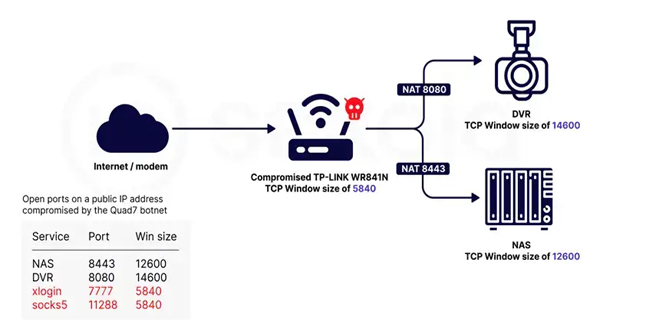Researchers found multiple vulnerabilities in various applications and system components on Xiaomi devices. “The vulnerabilities in Xiaomi led to access to arbitrary activities, receivers and services with system privileges, theft of arbitrary files with system privileges, [and] disclosure of phone, settings and Xiaomi account data,” The Hacker News report reads.
The 20 shortcomings impact different apps and components like –
By infosecbulletin
/ Saturday , July 27 2024
India’s Communications Minister Chandra Sekhar Pemmasani confirmed a breach at the state-owned telecom operator BSNL on May 20 during a...
Read More
By infosecbulletin
/ Saturday , July 27 2024
Malware based threats increased by 30% in the first half of 2024 compared to the same period in 2023, according...
Read More
By infosecbulletin
/ Friday , July 26 2024
A new critical vulnerability in the Domain Name System (DNS) has been found. This vulnerability allows a specialized attack called...
Read More
By infosecbulletin
/ Friday , July 26 2024
A serious vulnerability, CVE-2023-45249 (CVSS 9.8), has been found in Acronis Cyber Infrastructure (ACI), a widely used software-defined infrastructure solution...
Read More
By infosecbulletin
/ Friday , July 26 2024
OpenAI is testing a new search engine "SearchGPT" using generative artificial intelligence to challenge Google's dominance in the online search...
Read More
By infosecbulletin
/ Thursday , July 25 2024
CISA released two advisories about security issues for Industrial Control Systems (ICS) on July 25, 2024. These advisories offer important...
Read More
By infosecbulletin
/ Thursday , July 25 2024
Tenable security researchers found a vulnerability in Google Cloud Platform's Cloud Functions service that could allow an attacker to access...
Read More
By infosecbulletin
/ Thursday , July 25 2024
BDG e-GOV CIRT's Cyber Threat Intelligence Unit has noticed a concerning increase in cyber-attacks against web applications and database servers...
Read More
By infosecbulletin
/ Thursday , July 25 2024
GitLab released a security update today to fix six vulnerabilities in its software. Although none of the flaws are critical,...
Read More
By infosecbulletin
/ Thursday , July 25 2024
Sekoia.io and Intrinsec analyzed the Quad7 (7777) botnet, which uses TCP port 7777 on infected routers to carry out brute-force...
Read More
Print Spooler (com.android.printspooler)
Security (com.miui.securitycenter)
Security Core Component (com.miui.securitycore)
Settings (com.android.settings)
ShareMe (com.xiaomi.midrop)
System Tracing (com.android.traceur), and
Xiaomi Cloud (com.miui.cloudservice)
Gallery (com.miui.gallery)
GetApps (com.xiaomi.mipicks)
Mi Video (com.miui.videoplayer)
MIUI Bluetooth (com.xiaomi.bluetooth)
Phone Services (com.android.phone)
Notable flaws have been found, such as a shell command injection bug in the System Tracing app, and flaws in the Settings app that could enable theft of files and leak information about Bluetooth devices, Wi-Fi networks, and emergency contacts.
The Chinese handset maker modified legitimate components from the Android Open Source Project to add extra features, which caused the flaws.
A memory corruption flaw was found in the GetApps app. This flaw comes from an Android library called LiveEventBus. Oversecured reported this issue to the project maintainers over a year ago, but it has not been fixed yet.
The Mi Video app has been found to use implicit intents to send Xiaomi account information, such as username and email address via broadcasts, which could be intercepted by any third-party app installed on the devices using its own broadcast receivers.
Oversecured reported issues to Xiaomi from April 25 to April 30, 2024. Users should update their devices to protect against potential threats.
Source: Oversecured, Thehackernews
 InfoSecBulletin Cybersecurity for mankind
InfoSecBulletin Cybersecurity for mankind















